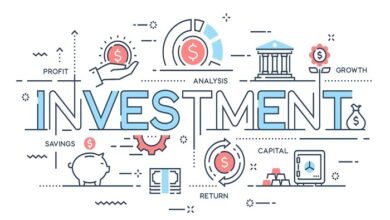Role of a Broker in Trading

Introduction
When delving into the world of trading, one of the first terms you will encounter is “broker.” But what is a broker in trading, and why are they so crucial to the process? In this comprehensive guide, we will explore the role of a broker in trading, their functions, types, and how they facilitate the buying and selling of financial instruments. By the end of this article, you will have a clear understanding of what a broker in trading does and why their role is indispensable.
Definition of a Broker in Trading
What is a broker in trading? A broker is an intermediary who executes transactions on behalf of clients in various financial markets. These professionals act as a bridge between buyers and sellers, ensuring that trades are conducted smoothly and efficiently. Brokers are essential in providing access to markets that individual traders might not be able to reach on their own.
Types of Brokers
There are several types of brokers in trading, each catering to different needs and preferences of traders:
- Full-Service Brokers: These brokers offer a wide range of services, including investment advice, portfolio management, and financial planning. They are ideal for investors who require personalized guidance.
- Discount Brokers: These brokers provide fewer services than full-service brokers but offer lower fees. They are suitable for more experienced traders who do not need extensive advice.
- Online Brokers: With the rise of technology, many brokers now operate online platforms that allow traders to execute trades themselves. These brokers are convenient and often come with lower fees.
Functions of a Broker in Trading
A broker in trading performs several critical functions:
- Executing Trades: Brokers buy and sell securities on behalf of their clients.
- Providing Market Information: Brokers offer insights and analysis to help clients make informed decisions.
- Ensuring Regulatory Compliance: Brokers ensure that all trades comply with relevant laws and regulations.
- Offering Investment Advice: Many brokers provide advice on investment strategies and portfolio management.
How Brokers Facilitate Trading
Understanding how a broker in trading facilitates transactions is crucial. Brokers use their expertise and access to trading platforms to execute buy and sell orders on behalf of their clients. They match buyers with sellers, ensuring that trades are completed efficiently and at the best possible prices. Brokers also handle the necessary paperwork and regulatory requirements, making the trading process seamless for their clients.
The Importance of Choosing the Right Broker
Selecting the right broker in trading is vital for your success as a trader. The right broker will provide the tools, resources, and support you need to make informed trading decisions. When choosing a broker, consider factors such as fees, services offered, platform usability, and customer support. A broker who aligns with your trading style and goals can significantly impact your trading outcomes.
Broker Fees and Commissions
Understanding the fee structure of a broker in trading is essential. Brokers charge fees and commissions for their services, which can vary widely. These fees may include:
- Transaction Fees: Charges for executing trades.
- Management Fees: Fees for managing investment portfolios.
- Inactivity Fees: Charges for accounts that do not meet minimum activity requirements.
- Research and Data Fees: Costs for accessing premium market research and data.
The Role of Technology in Modern Brokerage Services
Technology has revolutionized the role of a broker in trading. Online trading platforms and mobile apps have made it easier for traders to execute trades, access market data, and manage their portfolios. These technological advancements have increased the efficiency and accessibility of trading, allowing more individuals to participate in the financial markets.
Regulatory Environment and Brokers
Brokers in trading operate within a strict regulatory framework designed to protect investors and ensure market integrity. Regulatory bodies such as the Securities and Exchange Commission (SEC) and the Financial Industry Regulatory Authority (FINRA) oversee brokers and enforce compliance with laws and regulations. Understanding the regulatory environment is crucial for both brokers and traders to avoid legal issues and ensure fair trading practices.
Benefits of Using a Broker in Trading
Using a broker in trading offers several benefits:
- Access to Markets: Brokers provide access to a wide range of financial markets and instruments.
- Expert Advice: Many brokers offer professional advice and insights to help clients make informed decisions.
- Convenience: Brokers handle the technical aspects of trading, allowing clients to focus on their investment strategies.
- Risk Management: Brokers help manage risk by offering tools and strategies to protect investments.
Common Misconceptions About Brokers
There are several misconceptions about what a broker in trading does. Some believe brokers are only for wealthy individuals, but in reality, brokers cater to all types of traders, including beginners. Others think that using a broker is expensive, but the rise of discount and online brokers has made trading more affordable. Understanding the true role of brokers can help dispel these myths and encourage more people to engage in trading.
Conclusion
A broker in trading plays a pivotal role in facilitating transactions, providing market access, and offering valuable advice and support to traders. Whether you are a beginner or an experienced trader, understanding the role of a broker and choosing the right one can significantly impact your trading success. By leveraging the services of a broker, you can navigate the complex world of financial markets with greater confidence and efficiency.
FAQs
- What is a broker in trading?
- A broker in trading is an intermediary who executes buy and sell orders on behalf of clients in various financial markets.
- What types of brokers are available?
- There are full-service brokers, discount brokers, and online brokers, each offering different levels of service and fees.
- Why is choosing the right broker important?
- The right broker provides the tools, resources, and support needed for successful trading, impacting your overall trading outcomes.
- How do brokers charge fees?
- Brokers charge transaction fees, management fees, inactivity fees, and fees for accessing research and data.
- What benefits do brokers offer?
- Brokers offer access to markets, expert advice, convenience, and risk management tools, making trading more efficient and informed.





